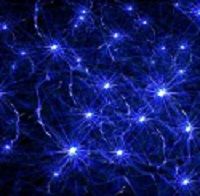Article
New Path for Analgesia in Neuropathic Pain
Author(s):
Study finds A3AR agonists reverse neuropathic pain

A3AR agonists show promise in reversing neuropathic pain directly and indirectly according to “Engagement of the GABA to KCC2 Signaling Pathway Contributes to the Analgesic Effects of A3AR Agonists in Neuropathic Pain,” recently published in The Journal of Neuroscience by Amanda Ford, Ph.D, St. Louis University, Mo. The study says current treatment strategies “lack efficacy” or produce “deleterious side effects” in patients and suggests A3AR-mediated agonists increase neurotransmitter modulation and protect potassium-chloride transporter KCC2 function.
Using chronic constriction injury-induced neuropathic pain in rodent models, researchers found A3AR analgesia to be free of adenosine unwanted effects. A3AR agonists reverse neuropathic pain via a spinal mechanism that modulates GABA activity. Reducing extracellular synthesis via GAD65 autoantibodies and enhancing extracellular reuptake via GAT-1 hampers pain as does loss of KCC2, states the study.
Researchers, who call their findings “not species-specific,” say they pave the way for future biochemical analysis using larger amounts of tissue. “Collectively, the findings presented herein provide a pharmacological rationale for the development of A3AR agonists as a novel approach to the treatment of chronic pain. The study provides “important mechanistic data” about A3AR agonists and the advantage of a two-pronged approach to restoring GABA function and enhancing bioavailability and the potential of KCC2,” the authors wrote.




